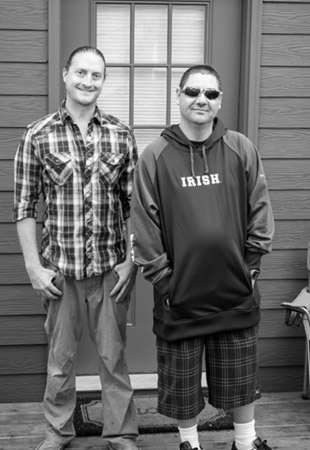By Vanessa Miali | CNA Media Team

How far are you willing to go to help your community deal with the homelessness crisis? Would you put a 200-square-foot accessory dwelling unit (ADU) on your property and house a homeless family for five years? What if the construction was free, and you could purchase the ADU at the end of your contract for fair market value?
This is the strategy behind an innovative housing project called A Place for You, created by the Multnomah Idea Lab, part of the Multnomah County Department of Human Services. The lab tests new policies and innovations to help people and communities thrive.
“The first and greatest benefit of this program is it directly creates housing for families,” said Tim Miller, Enhabit CEO, the nonprofit that administers the pilot project.
“Secondly, it’s bringing public partners and nonprofits together in a move toward creating a scalable housing solution for those who need it.”
Last spring, four homeowners were selected from 1,100 applicants to test the concept. Concordian John LaMar had decided building an ADU was not within his means. Instead, he applied to take part in the project.
“This program seemed like a good fit for us, plus it’s mutually beneficial for people who need housing,” John said. In late July, the preassembled ADU was installed in his back yard, and the new family moved in.
He sees his connection with the ADU occupants as more than just the landowner. “We have a neighborly relationship, and they are a very nice family.”
The four project locations were chosen based on proximity to key services like transit, public schools, grocery stores and daycares.
“Part of the magic is figuring out how housing can be integrated into the community because housing is what ends homelessness,” said Denis Theriault, county Joint Office of Homeless Services communications coordinator.
During the project, the four families will receive social service support from the county, such as help if a car breaks down, medical bills or job placement assistance. They will also be expected to contribute a small amount to their rent for maintenance and upkeep.
“This program seemed like a good fit for us, plus it’s mutually beneficial for people who need housing.”
– John LaMar
According to the Department of Housing and Urban Development, the vast majority of homeless who transition into supportive housing situations are able to remain housed in the community. They are also less likely to be incarcerated or use costly emergency health care systems.
If the pilot project is successful, the county’s aim is to eventually build 300 tiny homes and promote the program across the country.
Vanessa Miali has lived in Concordia for 18 years. She is a former public relations professional with two kids who cooks every day and gardens occasionally.